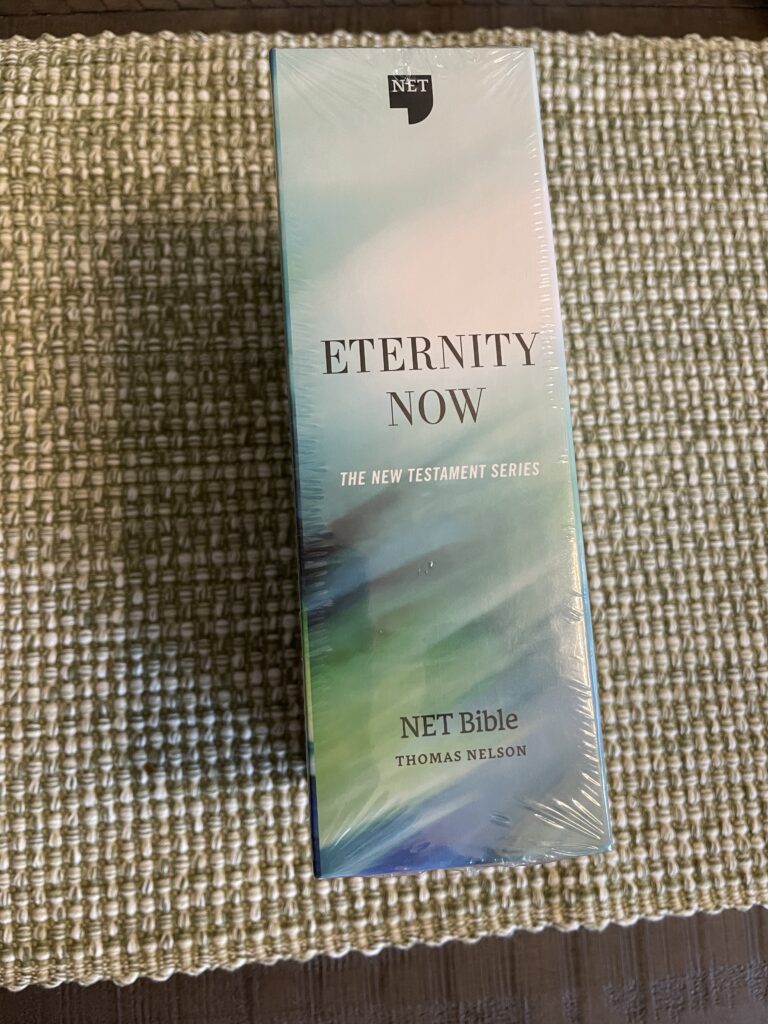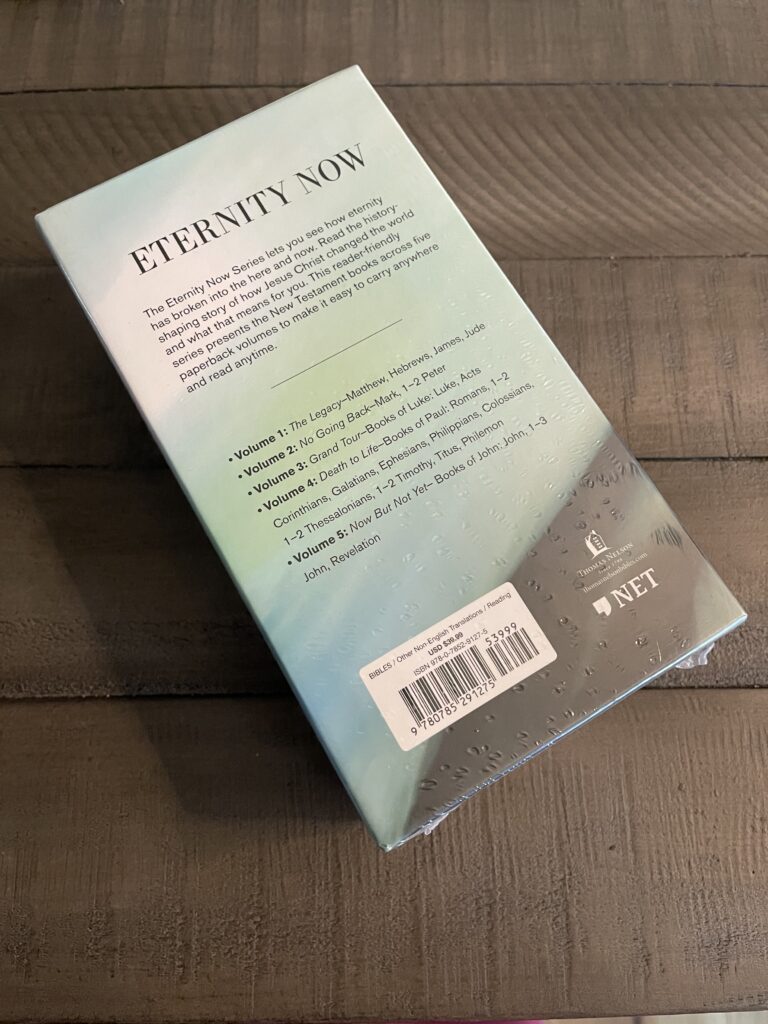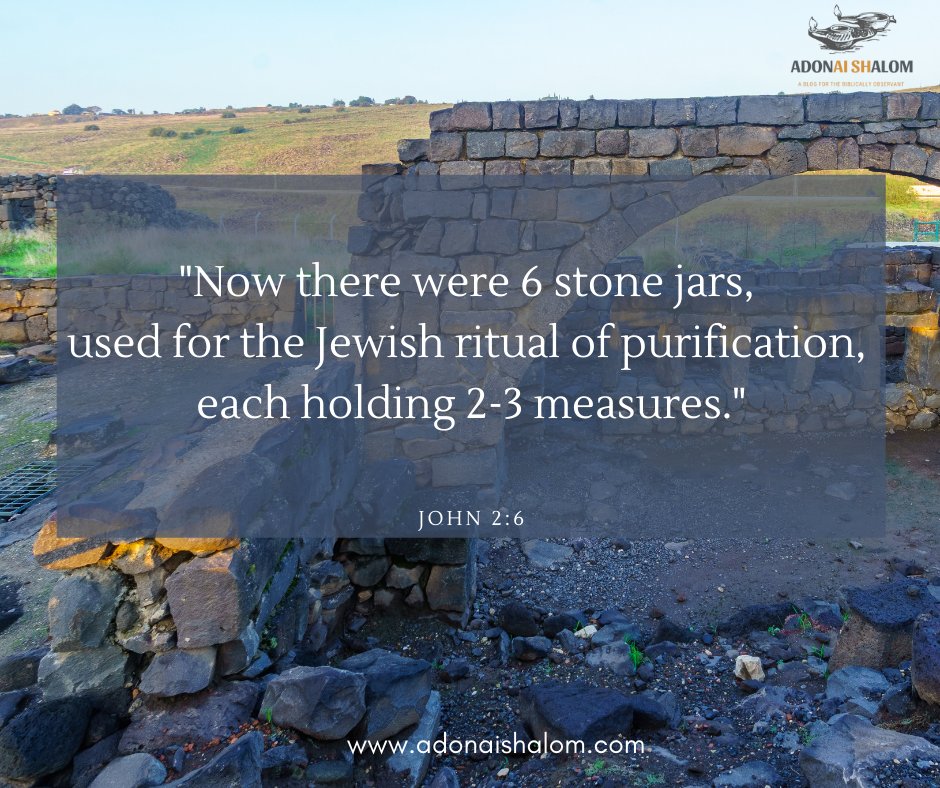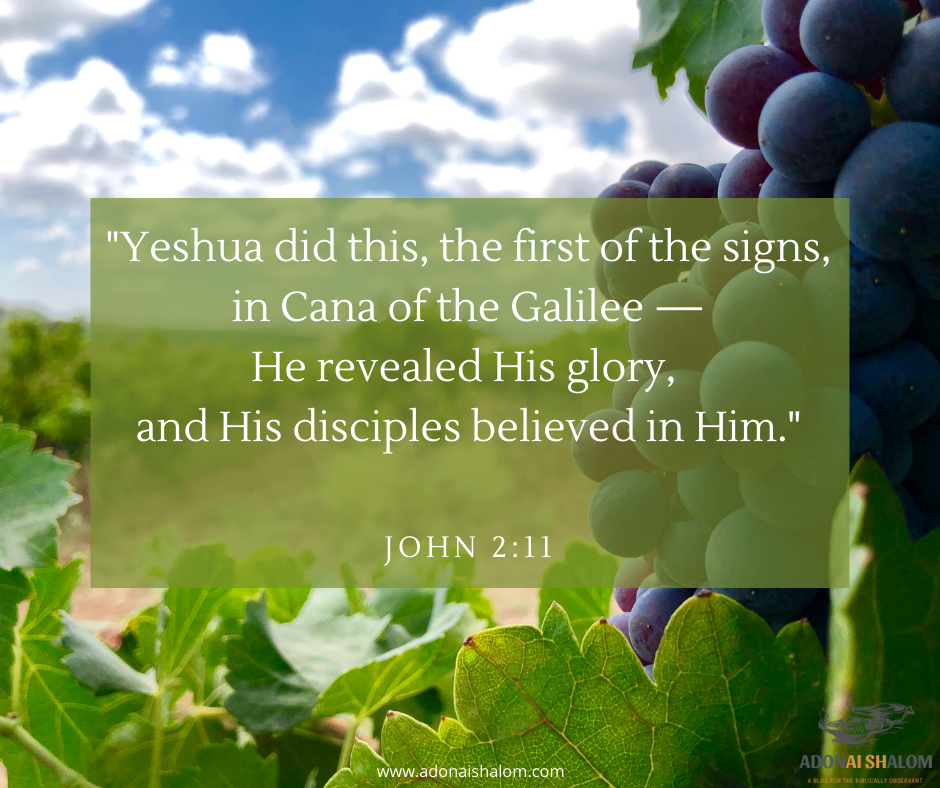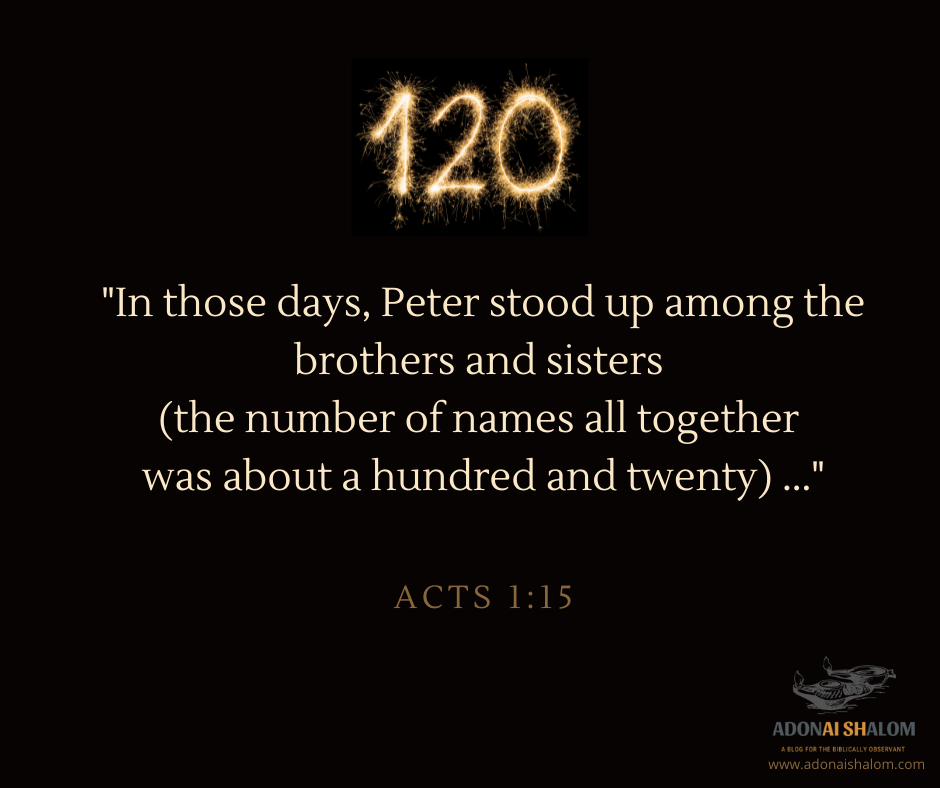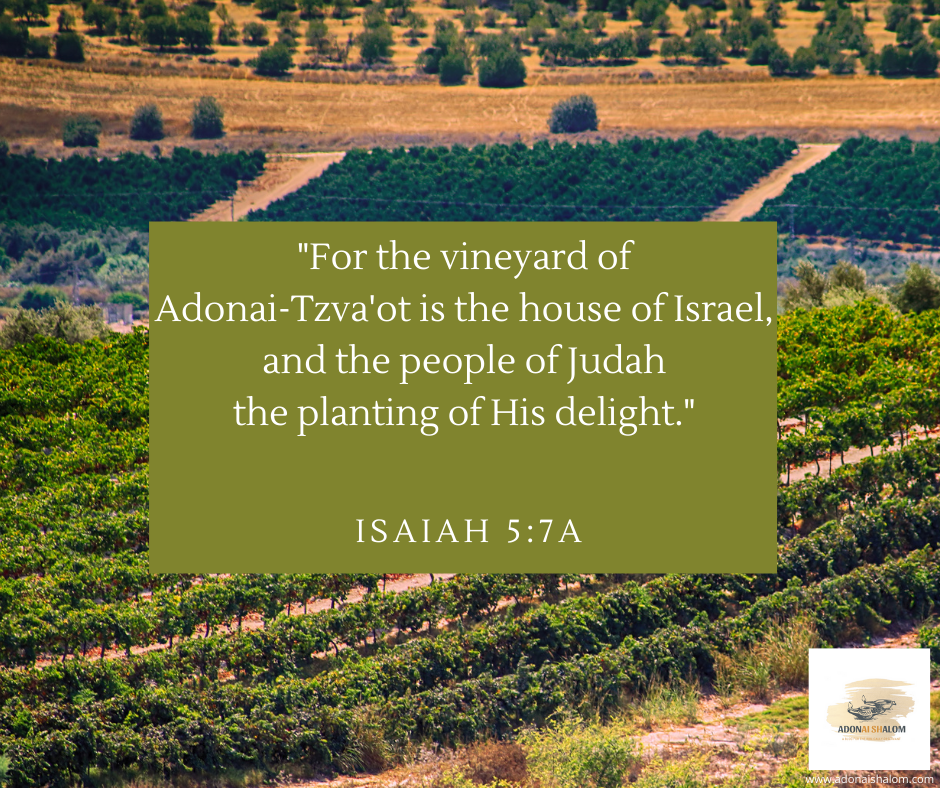Review: The New Testament for Everyone by N.T. Wright
I am a member of the Bible Gateway Blogger Grid (BG2). As a #BibleGatewayPartner, I have received a copy of the The New Testament for Everyone published by Zondervan Bibles at no cost to me in exchange for an honest review here on the Adonai Shalom USA blog. #BG2 #BGBG
The New Testament for Everyone (3rd edition) Book Review & Description
The New Testament for Everyone by N.T. Wright is a beautiful book with quality binding. The hardcover edition of the New Testament for Everyone by N.T. Wright comes with a sturdy book box sleeve and has the feel of a coffee table book. It is definitely a book worth leaving out for your houseguests to peruse!
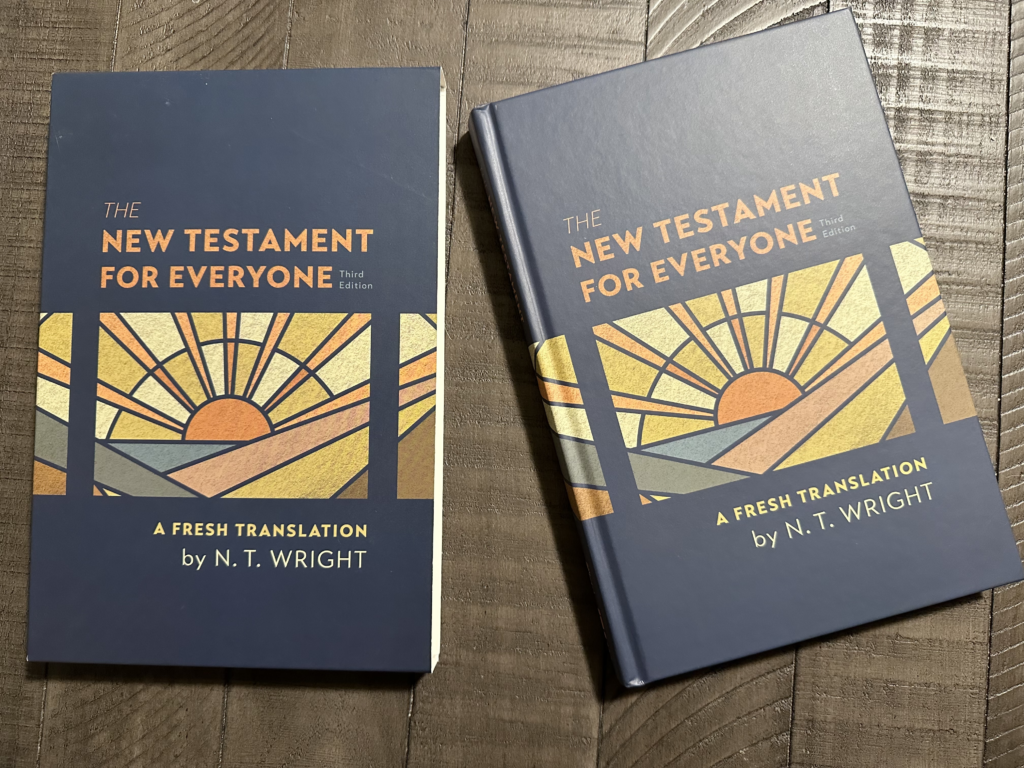
N.T. Wright: A Reliable Scholar
Professor N.T. Wright has earned a solid reputation as one of the foremost Biblical scholars of our day. He serves on the faculty of theology and religion at Oxford University and has also taught at Cambridge.
I have long respected N.T. Wright’s ability to defend the historicity of Jesus against some of the popular resurrection deniers like Marcus Borg and John Spong. I was raised indoctrinated in the Borg/Jesus Seminar camp, but I was moved by Wright’s conviction that Jesus did indeed live, die, and rise again in power. I read many books by N.T. Wright before converting to Bible-believing Christianity.
The evangelical church as a whole has been blessed by N.T. Wright’s scholarship because he has been willing to engage in respectful debate concerning the Historical Jesus and provide a wealth of commentary and study materials on various New Testament topics. Wright’s dedication to searching the riches of Scripture proves that it is absolutely possible to remain a person of faith in the academy. Because of people like N.T. Wright, Bible-believing Christians need not become disproportionately distrustful of or shun academic pursuit. We may not agree on everything, but N.T. Wright definitely brings thoughtfulness and a wealth of knowledge to theological study and discussion.
N.T. Wright has chosen to work to help ordinary people understand deep theological concepts and he doesn’t just hide away in an ivory tower, but rather uses his scholastic aptitude for the sake of the Gospel.
Knowing that N.T. Wright values the Bible as the Word of God and is not a deconstructionist theologian trying to disprove or devalue the Word of God makes the New Testament for Everyone all the more appealing.
I never thought of this before, but Wright’s given name is Nicholas Thomas – he goes by his initials N.T. And he is a New Testament (N.T.) scholar! How providential! :). Next time you need a commentary on the New Testament, check out a book by Professor N.T.!
The New Testament for Everyone: A Fresh Translation
The title and tagline immediately grasped my attention: a New Testament translation completed by an eminent theologian who wants “everyone” to be able to understand it. Amazing!
I spent enough time in Divinity School to know that not every professor/theologian cared if the general public could understand their posturing and pontificating.
In contrast, Professor N.T. Wright is using his God-given intellectual abilities to share the Gospel in a way that modern readers can truly understand. This is a gift!
From the back of the book jacket: “If the Bible cannot be understood by everyone, then it is not good news. From the very first days of the church at Pentecost, the good news of Jesus was translated into languages of everyday people through the power of the Holy Spirit, spreading like wildfire to the ends of the earth.”
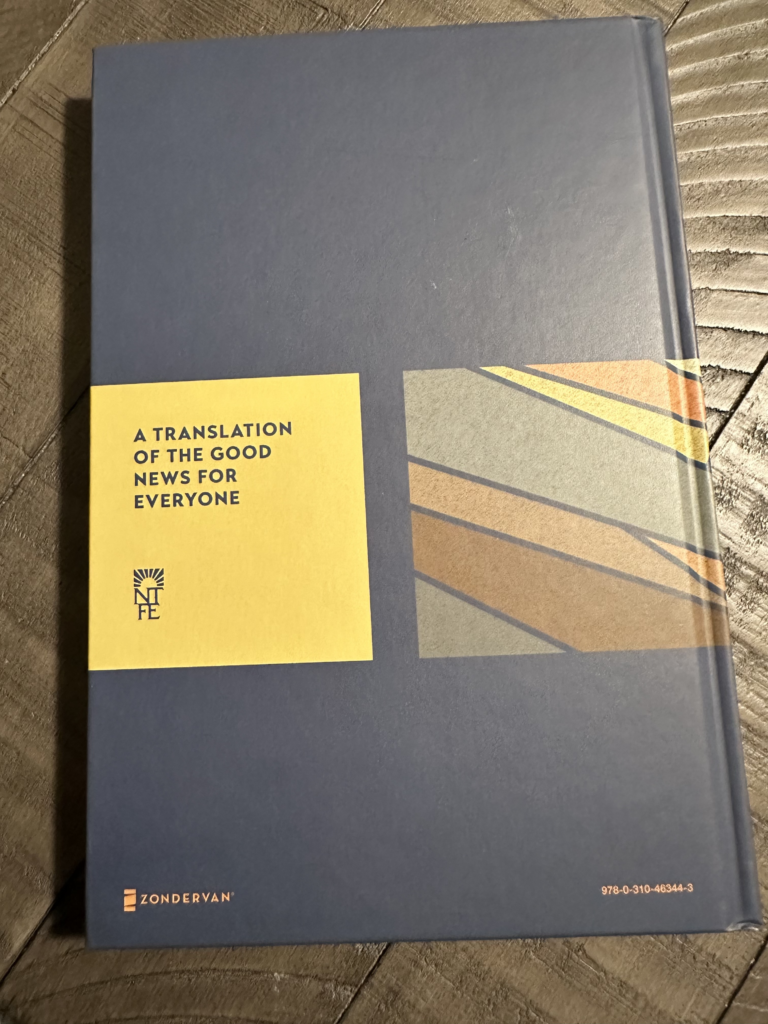
The Pentecostal minister in me says, “Amen!”
Also, “The language used in this translation seeks to convey the meaning of the original Greek while also being accessible to the modern reader, making it a valuable resources for scholars, pastors, and . . . everyone!”
I believe the New Testament for Everyone translation will become very useful for church Bible studies and pastoral sermon preparation.
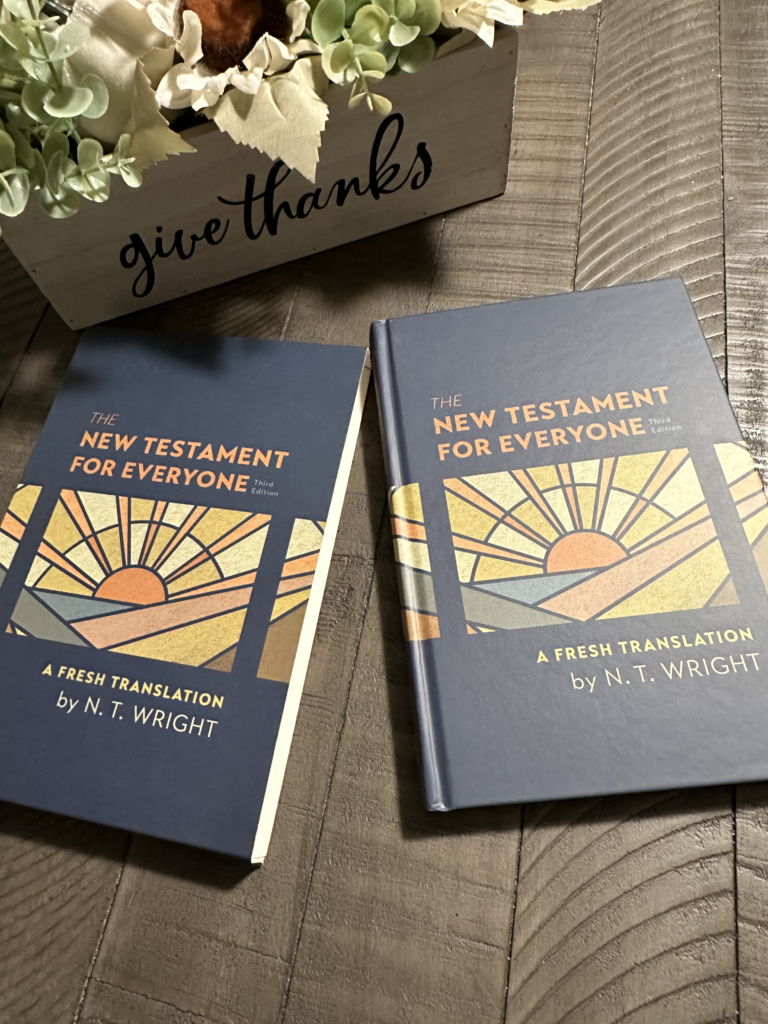
Deity Pronouns
“Religious” words such as the “Holy Spirit” and deity pronouns such as “He” when referring to Jesus are traditionally capitalized in Bible translations. It is becoming more common for these words to be printed in lowercase, with academics citing no distinction in the original languages. The New Testament for Everyone follows this custom and I noticed it fairly quickly when I began reading through some of the first pages of the Gospel of Matthew.
This editorial practice concerns me; however, because we live in a day and age in which respect is lacking. The utilization of lowercase text for the third Person of the Trinity simply makes me uncomfortable, but that is just my personal preference.
But speaking of pronoun debates, at least we can all agree here that Jesus was a man. 😂😇
Translation, Updated Language, and the Power of Pentecost
The English language is malleable and has changed over time. Certainly, as a British scholar, N.T. Wright knows this because even his Canadian and American colleagues do not use the queen’s (now king’s!) English.
I was struck by the New Testament for Everyone translation’s rendering of the interaction between John the Baptist and Jesus in Matthew 3:
John tried to stop him. “I ought to be baptized by you,” he said, “and are you going to come to me?” This is how it’s got to be right now,” said Jesus, “This is the right way for us to complete God’s whole saving plan.”
Matthew 3:14-15, New Testament for Everyone by N.T. Wright
Upon reflection, it is so very true that this is the way most of us talk nowadays. It is quite different from the New King James Version’s:
And John tried to prevent Him, saying, “I need to be baptized by You, and are You coming to me?”
But Jesus answered and said to him, “Permit it to be so now, for thus it is fitting for us to fulfill all righteousness.” Then he allowed Him.Matthew 3:14-15, NKJV
I really like how N.T. Wright communicates that “fulfilling all righteousness” is “completing God’s whole saving plan.” My only concern would be if this translation is veering far from a literal understanding/translation of the original Greek, but it seems that Wright (accomplished in Greek) is doing his best to express the original in terms we understand today. Indeed, in the preface, Wright shares that he does not intend to paraphrase, but instead to translate as closely as possible while recognizing that there are certain words or phrases that are virtually untranslatable from one language to another. He writes, “all translation is risky, but it’s a risk we have to take.” (Wright, vii).
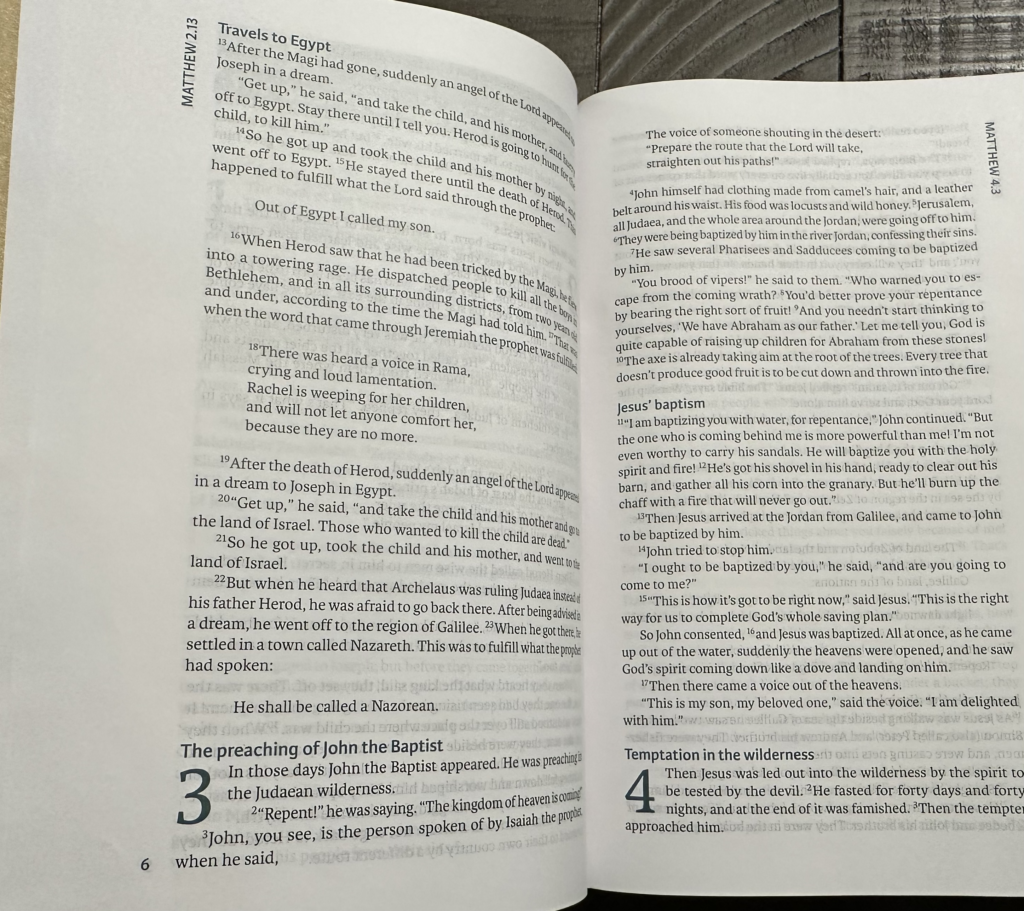
Returning to the example of Pentecost, N.T. Wright, powerfully points out, “The first thing that happened in the life of the church was translation. On the Day of Pentecost, God’s powerful wind swept through Jesus’ followers, filling them, like the sails of a great ocean-going sailing ship, so that they could take God’s good news to the ends of the earth. And they found themselves speaking other languages, so that everyone in the crowd could understand.” (Wright, vii).
Wright continues his preface in a highly accessible, attention-grabbing writing style. I am looking forward to reading through this entire translation this winter, snuggled under a blanket by the fireplace.
Book Contents
As promoted by the title, this book contains all of the writings of the New Testament Scriptures translated in a way that makes sense to English-speakers today. In the New Testament for Everyone, each of the books is named using the traditional names except for the letter of Jude: N.T. Wright helps readers understand that this letter was written by “Judah,” important for contextualizing the Hebraic nature of much of the writings even of the New Testament.
The New Testament for Everyone also contains maps and a glossary.
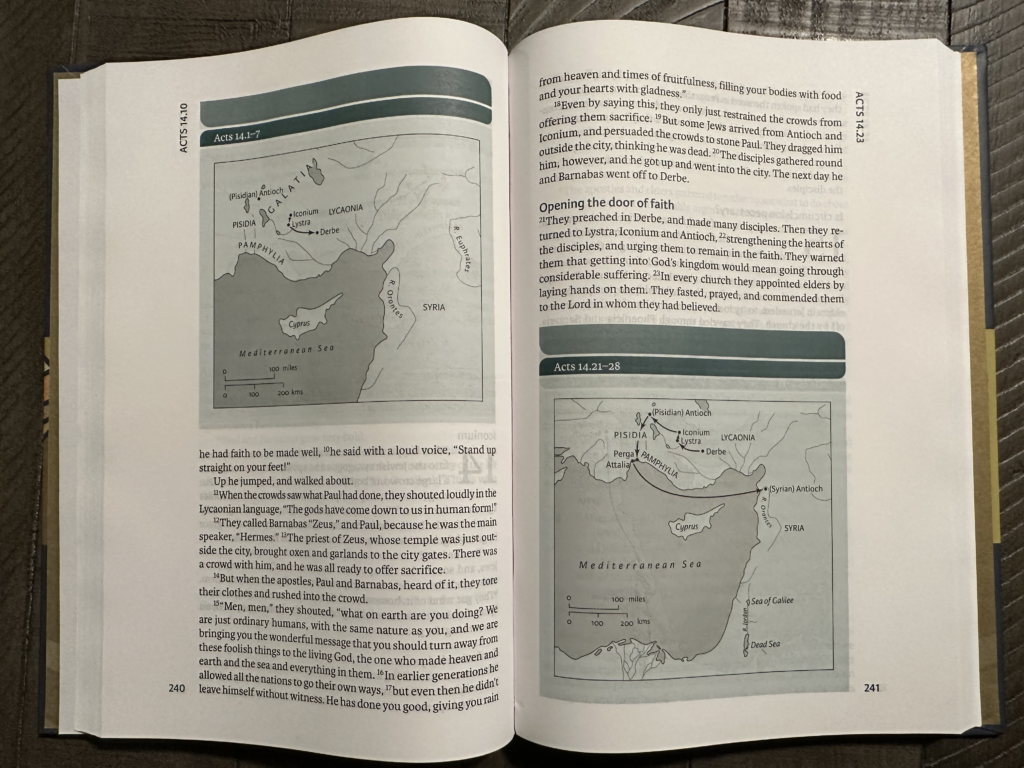
Jesus, Messiah
If you know me well, you will notice that I often prefer to write Jesus the Messiah as opposed to Jesus Christ. This is because I feel that “Christ” has become a title almost like a last name but one that, due again to our language, does not carry the original meaning of Messiah/Anointed One that Middle Eastern Jews would have recognized in their language. Using the terminology of “Christ” repeatedly cements the Greek mindset primordially into a text that was intended to reach the Jew first and then the Greek.
Jesus came to be our Messiah and I was pleasantly surprised to discover that linguistically N.T. Wright agrees with me! He has favored the term “Messiah” throughout the New Testament for Everyone which is fairly groundbreaking since this translation is intended for a wide audience!
A sample to give you the idea:
The well known verses from the New King James translation of Philippians 2:9-11:
Notice how N.T. Wright has translated these same verses:
“And so God has greatly exalted him, and to him in his favor has given the name which is over all names: That now at the name of Jesus every knee within heaven shall bow – on earth, too, and under the earth; and every tongue shall confess that Jesus, Messiah, is Lord, to the glory of God, the father.” Philippians 2:9-11, New Testament for Everyone by N.T. Wright, emphasis added
This discovery has really convinced me that I am going to greatly enjoy this new resource and I believe you will, too!
My recommendation:
★★★★★
Rating: 5 out of 5.
The New Testament for Everyone deserves a 5 out of 5.
N.T. Wright exhibits remarkable humility and dedication to the furtherance of the Gospel mission in his New Testament for Everyone. His lifetime of study and teaching has inspired him to translate the New Testament in a fresh manner that will bless laity, students, scholars, pastors, and teachers all over the English-speaking world. I highly recommend this resource to everyone who loves the Word of God.
Rev. Jennifer Mieliulis Fuentes, M.Div., Duke University
Book details
Title: The New Testament for Everyone
Author: N.T. Wright
Publisher: Zondervan Bibles
Release Date: 2023
Genre: BIBLES/Other English Translations/Text
ISBN-13: 978-0-7852-2771-7
PURCHASE LINKS: Amazon | FaithGateway Store
#BibleGatewayPartner


